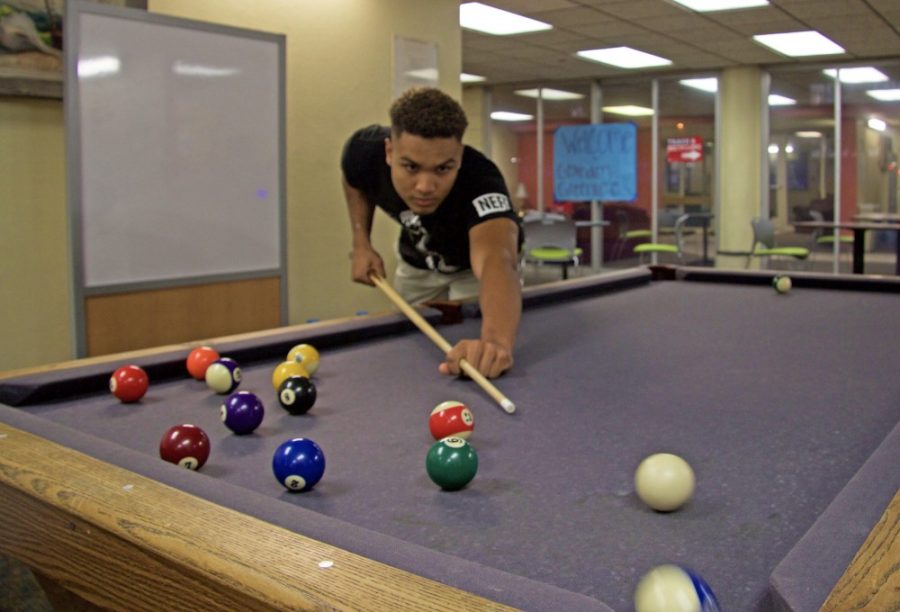The transition from high school to college can be difficult. A newfound independence may be intimidating, and there are many questions that students have waiting to be answered.
What is D2L? Is it required to read the syllabus? Are office hours helpful? What campus resources are available? Freshman year is packed with a whirlwind of experiences and to make it a little easier here are some helpful questions, answered.
For starters, every freshman should know how to access D2L, but many students are unaware of this online portal until their first day of classes.
“We do get a number of questions regarding D2L,” said Jenny Nirh, director of Support. Opportunity. Success. (SOS), a student engagement resource on campus.
This is because some students don’t know how to use the website. To solve this issue, SOS created a new D2L help center.
“This year we have the SOS launchpad,” Nirh said. “This program has a description of D2L and allows students to practice using it. The website has the same setup as D2L and includes a video tutorial.”
RELATED: Letter from the editor: The Wildcat is changing and it’s all about you
Students should read the entire syllabus for each class. Nirh said it’s important for students to look at their syllabi and know the class policies well. In most cases, the syllabus has a schedule for the semester also. Ashley Ives, a communication senior, suggests writing down the entire schedule for each course in a planner at the start of the semester instead of writing down assignments along the way.
“It’s more beneficial in the long run to write your assignments down the first week of school so you prevent missing due dates,” Ives said.
To do well in a class, it is helpful to attend office hours. Professors may seem unapproachable, but they are often more than willing to answer questions and help with confusion on class topics. Office hour times are usually listed at the top of the syllabus, but if a student cannot attend the set time, he or she can usually email the professor and request an appointment.
“Office hours allow students to build relationships with their professors that are beneficial in the end,” said Kristen James, a junior majoring in communications and information science and eSociety.

There are many resources on campus that assist students with further complications.
SOS is a program that students can enter to ask any question or issue they are concerned about. Nirh said SOS usually gets questions regarding finals scheduling, shuttles to Phoenix and available campus healthcare options.
“SOS is designed for all students on campus to answer any questions they have,” said Nirh.
The SOS office is located in the Student Union Memorial Center and is open Monday through Friday from 9 a.m to 4 p.m., but it answers email questions until 10:00 p.m.
Students can also use THINK TANK, a tutoring center on campus that offers assistance for math, science, writing, language and business courses. Tutoring sessions are on a walk-in or appointment basis. Many students receive help for their class papers through THINK TANK’s Writing Center. THINK TANK offers an Academic Skills program as well that teaches study habits.
The Academic Skills walk-in appointments are located in the Bear Down Gymnasium on Mondays and Tuesdays from 9 a.m. to 11 a.m. and 3 p.m. to 7 p.m., and Wednesdays and Thursdays from 3 p.m. to 6 p.m. The program also grants online access on Wednesdays and Thursdays from 5 p.m. to 7 p.m.
RELATED: Don’t let the stress of the semester creep up on you this semester, CAPS is there to help
Another resource is CAPS, or Counseling and Psych Services. CAPS is a judgement-free zone where students can express their concerns, thoughts or feelings. First-time appointments are walk-in only with a triage counselor who assesses a student’s needs. Students can walk in Monday through Friday at any time between 9 a.m. and 4 p.m. CAPS is located on the third floor of the Campus Health Center behind Highland Market.
A relatively new resource on campus is the SALT program. This program assists students with learning or attention disabilities.
“I’m in the SALT program so I’m going to use all the benefits they offer such as tutoring and meetings,” said Makaiya Marshall, an undeclared freshman.
Freshman year may be rocky at first, but as weeks and semesters go by it will be easier for students to decide what works for them and what doesn’t. Good luck, freshmen! Enjoy your first semester.
Follow Daily Wildcat on Twitter









